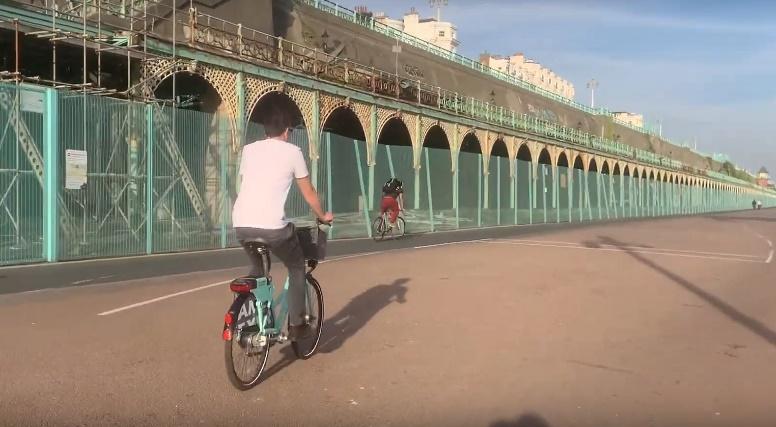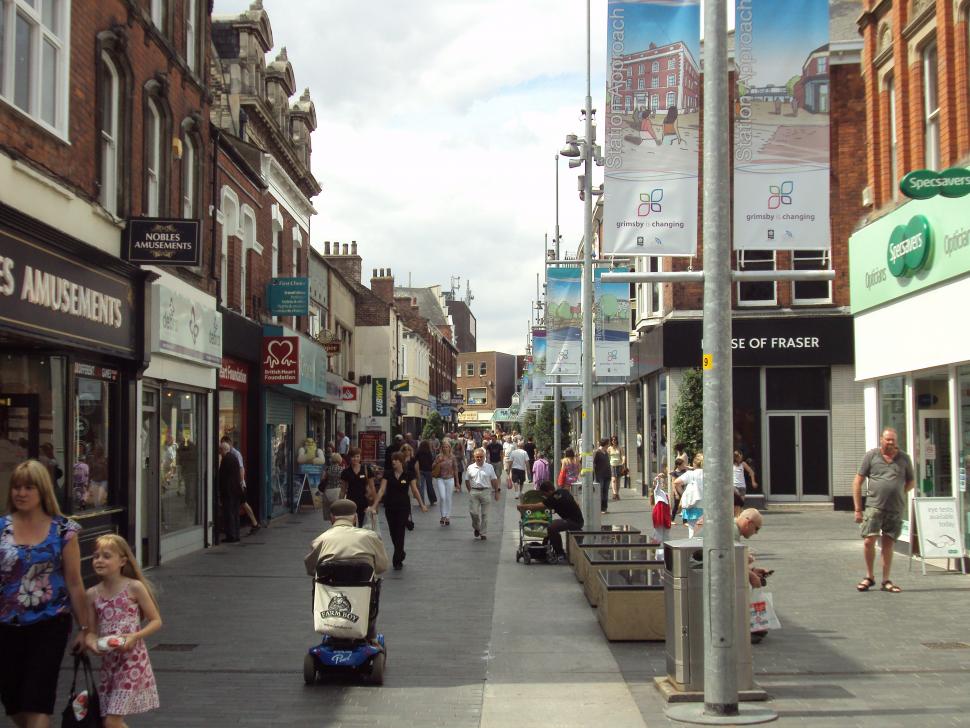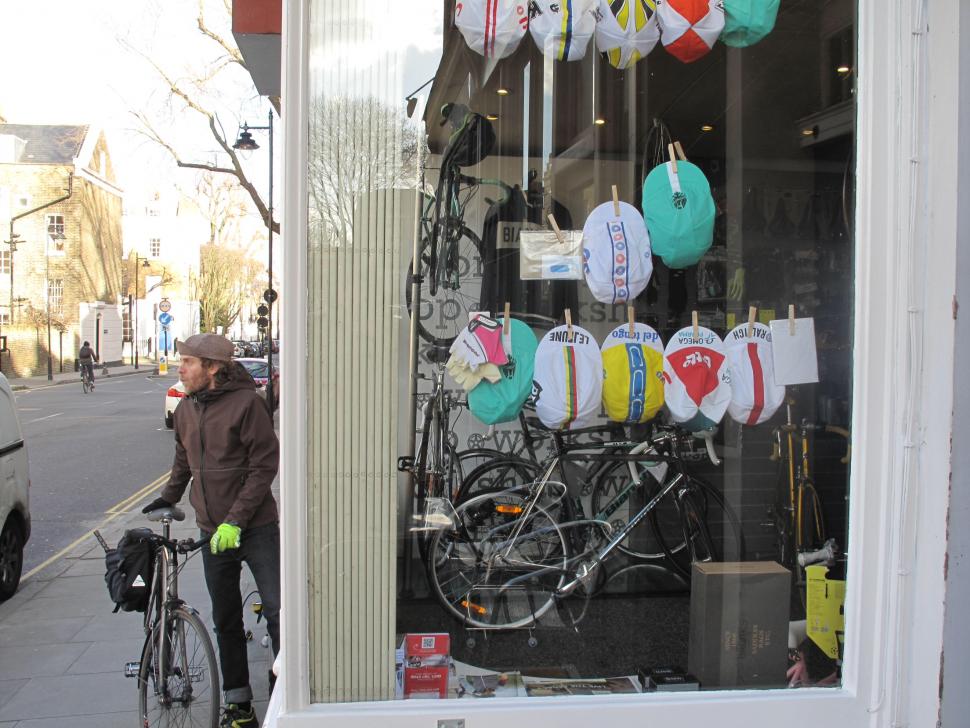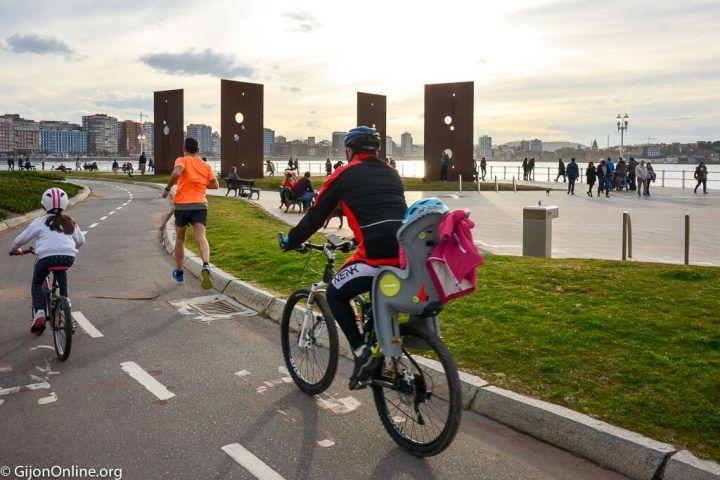- News
- Reviews
- Bikes
- Accessories
- Accessories - misc
- Computer mounts
- Bags
- Bar ends
- Bike bags & cases
- Bottle cages
- Bottles
- Cameras
- Car racks
- Child seats
- Computers
- Glasses
- GPS units
- Helmets
- Lights - front
- Lights - rear
- Lights - sets
- Locks
- Mirrors
- Mudguards
- Racks
- Pumps & CO2 inflators
- Puncture kits
- Reflectives
- Smart watches
- Stands and racks
- Trailers
- Clothing
- Components
- Bar tape & grips
- Bottom brackets
- Brake & gear cables
- Brake & STI levers
- Brake pads & spares
- Brakes
- Cassettes & freewheels
- Chains
- Chainsets & chainrings
- Derailleurs - front
- Derailleurs - rear
- Forks
- Gear levers & shifters
- Groupsets
- Handlebars & extensions
- Headsets
- Hubs
- Inner tubes
- Pedals
- Quick releases & skewers
- Saddles
- Seatposts
- Stems
- Wheels
- Tyres
- Health, fitness and nutrition
- Tools and workshop
- Miscellaneous
- Tubeless valves
- Buyers Guides
- Features
- Forum
- Recommends
- Podcast
news
No cycling, or love cycling? Signs to keep cyclists off pavements vandalised with hearts; Cyclists protest bike lane dismantling by right-wing council; Jeremy Vine vs lorry bin drivers pt.2; Lance Armstrong’s reality TV antics + more on the live blog
SUMMARY
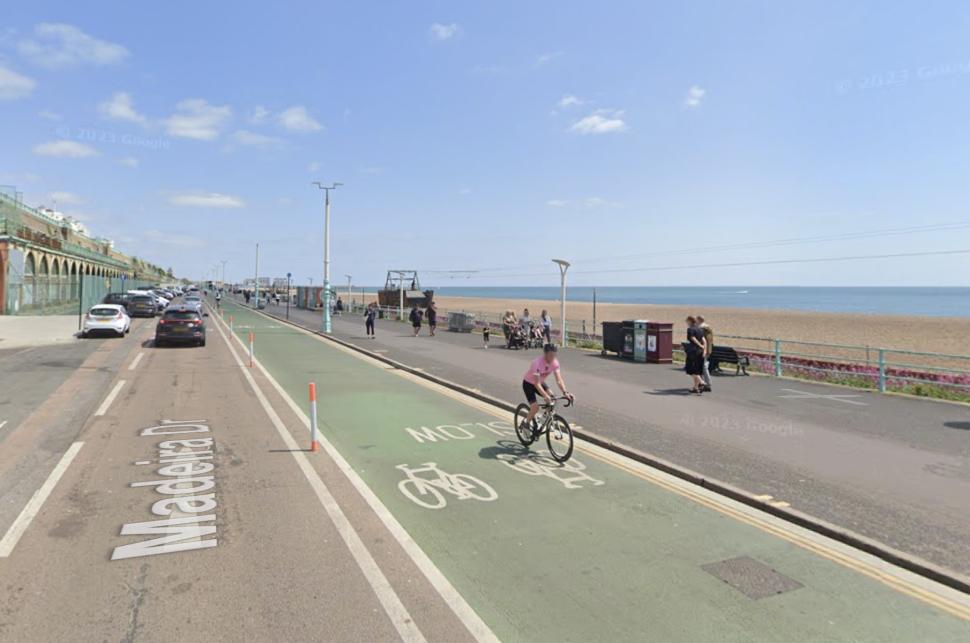 Madeira Drive cycle lane, Brighton (Google Maps)
Madeira Drive cycle lane, Brighton (Google Maps)31 August 2023, 14:06
Brighton and Hove Council's response to 'No cycling' sign vandalism: "We 'heart' cycling too, but..."
Brighton and Hove's Labour Council doesn't have the best reputation amongst cyclists — having been called "actively against active travel" and accused by a former Green councillor today that they will do "nothing" to deliver on the previous council's active travel promises.
However, it has admitted to road.cc that it "hearts" cycling too, when we contacted them about the vandalism story from this morning, with the "no" covered and turned into a "heart" to spell out "love cycling" on the Brighton seafront.
Council leader Bella Sankey told road.cc: “Brighton & Hove City Council ‘hearts’ cycling too. But we believe it’s important to have separated routes for pedestrians, cyclists and motorists to ensure everyone’s safety.
"Cycling is not permitted on any pavements unless it is specifically signposted that cyclists can share it with pedestrians – and this stretch of pavement is no exception.
"There is however a very wide cycle lane in Madeira Drive as an alternative to this stretch of pavement.
"It was created by the council specifically to encourage active travel, and we’d encourage our cyclists to use this route in the interests of everyone’s safety."
We didn't receive any updates about the cycle lane on Marine Parade though, for which the previous Green council had secured £1.2 million from the Active Travel fund. Well at least, they at least didn't write "pedestrians, cyclists, and road users" this time. Small wins, I know, maybe too small.
31 August 2023, 08:11
No cycling or love cycling? Signs to keep cyclists off pavements vandalised by turning "no" into a "heart"
"No cycling"? Nah, "love cycling". Or, at least that's what the signs in Brighton are saying now after reports of vandalism on the city's seafront.
Now that's a change of pace when it comes to cycle-lane vandalism stories. The signs, on the upper promenade adjacent to Marine Parade in Brighton appearing around every 100 metres, are there to indicate that cyclists shouldn't be on the pavement. But the majority of them, along from Old Steine to Brighton Marina, have been vandalised, with the "No" plastered into a heart symbol, reports The Argus.
Cycling is banned on the upper promenade pavement and bike riders are encouraged to use the road or walk with their cycle on the pavement, as other signs also suggest. They can also use the cycle lane which is parallel to the pavement down on Madeira Drive.
Incidentally, Brighton and Hove's former Green council succeeded in securing a £1.2 million funding for a cycle lane on Marine Parade, next to the pavement, from the Marina to the Palace Pier in May. However, the May elections saw Labour come into power, which has since been described as being "actively against active travel" and accused of "wilfully destroying cycling infrastructure".
Jamie Lloyd, former Green Councillor and lead for Active Travel, told road.cc: "It was the previous Green council that won the 1.2 million for the improved cycle lane and now the anti-active travel Labour Council are in full control they will almost certainly not do anything to deliver on that."
The scheme would provide a continuous two-way cycle facility on the southern side of the A259, as well as improvements to pedestrian crossings and new crossings along the route.
It would also include cycle parking, provision of a BTN Bikeshare hub and bus network improvements between the Palace Pier roundabout and Lower Rock Gardens.
The Green council had said the cycle lane was needed in addition to the Madeira Drive lane because it can only be accessed at either end — from the Palace Pier roundabout at its west end or Dukes Mound and the Marina to the east.
Steve Davis, who was the co-chair of the council’s Environment, Transport and Sustainability Committee under the Greens, had said: "Marine Parade is one of the strategic routes prioritised in the Local Cycling and Walking Infrastructure Plan that councillors approved earlier this year and so being able to deliver on this so quickly will be great for taking that long term vision forward."
There have been no updates on the cycle lane since then. road.cc has contacted the council, but maybe some cheeky vandalism will finally spur action?
31 August 2023, 16:24
Council insists disabled cyclists won't be fined under controversial town centre cycling ban
The comments come after a campaign group for disabled people who cycle has criticised a councillor's "just get off an walk" advice to cyclists who do not want to become the latest people to be fined under Grimsby town centre's Public Space Protection Order (PSPO) prohibiting cycling in pedestrian areas.
Critics have previously accused the council of targeting "old and slow" cyclists, while a disabled cyclists' campaign group has asked the council to not prevent elderly and disabled people access to local amenities...
> Council insists disabled cyclists won't be fined under controversial town centre cycling ban
31 August 2023, 16:08
Olympic figure skater Adam Rippon reveals Lance Armstrong just won't let go of the trans athletes debate on reality TV show
Well, we all know that if the producers of a 'reality TV show' were casting Lance Armstrong, they wouldn't really be betting on him as a hero. We already know of him embracing the 'villanous' turn in the reality show Stars on Mars, after his heated debate with Modern Family star Ariel Winter over transgender athletes, so much so that he even threatened to leave.
Giving everyone the U.S. Postal Service team bus experience, I see.
Armstrong had started by plugging his podcast and bringing up his opinion that there should be a separate category for trans athletes, which wasn't greeted with much enthusiasm from his fellow contestants.
Singer Tinashe argued that excluding trans people “from the same spaces and places that everyone else uses” is “not good for their mental health”.
"Actually, no, we’re not excluding anybody,” Armstrong jumped back in. “And, by the way, I sound like a right-wing lunatic. I’m not. I’m the most liberal person, but from a sporting perspective…"
Actress Winter then remarked that the banned rider was "ostracising the people who don’t fit in the categories", while Olympic figure skater said Armstrong’s stance was "disheartening" and that the debate around trans participation in sport was "way more nuanced" than the Texan was making out.
Rippon also admitted that Armstrong’s remarks "have completely shifted the energy and have completely shifted the focus, and I will not ever forget them."
Now, Rippon has revealed that viewers didn't see just how long Armstrong extended the heated discussion and that it made him "wildly uncomfortable" that he wouldn't drop the subject.
Rippon told his co-star Winter that Armstrong's comments were "so disheartening." In his confessional, the skater said: "Those comments here in this experiment have completely shifted the energy and have completely shifted the focus, and I will not ever forget them."
As reported by Entertainment Weekly, Real Housewives of Atlanta star Porsha Williams also tried to discourage Armstrong from continuing to speak on the topic. "That's not the conversation you need to be having here," she said. "You're not at your kitchen table."
Well, if that's what he brings to Mars, I better not be at Armstrong's kitchen table. Or anywhere near him, please.
31 August 2023, 15:51
🍾
Me when I remember it's a four-day work week:
🔞😜 Solo para mayores de edad (y ganadores de etapa en #LaVuelta23)
🔞😜 Drink responsibly - only for adults (and Vuelta stage winners!)
🍾 @seppkuss #CriaCuervos 👀 @OutOfCycling pic.twitter.com/tJRFId0g6Q
— La Vuelta (@lavuelta) August 31, 2023
31 August 2023, 15:13
GC Sepp Kuss is real! Jumbo Visma pull off a perfect day at the Vuelta as Kuss takes win, while Vingegaard and Roglič pull ahead of Evenepoel
⛰️⛰️⛰️⛰️⛰️⛰️⛰️⛰️⛰️⛰️⛰️
⛰️⛰️ 𝑃𝑖𝑐𝑜 𝑑𝑒𝑙 𝐵𝑢𝑖𝑡𝑟𝑒 ⛰️⛰️⛰️
⛰️⛰️ 𝑂𝑏𝑠𝑒𝑟𝑣𝑎𝑡𝑜𝑟𝑖𝑜 𝐴𝑠𝑡𝑟𝑜𝑓𝑖́𝑠𝑖𝑐𝑜 ⛰️
⛰️⛰️ 𝐽𝑎𝑣𝑎𝑙𝑎𝑚𝑏𝑟𝑒 ⛰️⛰️⛰️
⛰️⛰️⛰️⛰️⛰️⛰️⛰️⛰️⛰️⛰️⛰️
🏆 🇺🇸 @seppkuss - @JumboVismaRoad
#LaVuelta23 pic.twitter.com/IELMEzFf6p— La Vuelta (@lavuelta) August 31, 2023
A day in the mountains with a summit finish. Jumbo Visma chasing down a Grand Tour triple with two stars Jonas Vingegaard and Primož Roglič. And Remco Evenepoel fighting to defend his red jersey. What do you think might have happened next?
Well of course, enter the American domestique who you could depend on if your life was ever in doubt, Sepp Kuss.
High-fiving spectators, pumping his fists and looking like he was chilling on flats, while finishing almost 3 minutes ahead of his two teammates and an insane 3:24 ahead of red jersey Evenepoel.
What a rider, chapeau Kuss!
🚀 ¡¡QUÉ ETAPA!! 🥵 Revive el ÚLTIMO KM de lo sucedido en la subida a Pico del Buitre.
🔥 WHAT A STAGE! Battles up and down the road ... relive the final KM on the Pico del Buitre.#LaVuelta23 #CarrefourconLaVuelta23 @carrefourES pic.twitter.com/tYAX988f82
— La Vuelta (@lavuelta) August 31, 2023
Having spoken out against ambitions of winning a Grand Tour, Kuss finds himself second in the general classification, eight seconds behind the brilliant and gifted 20-year-old French rider Lenny Martinez from Groupama FDJ. (I swear they keep getting younger!)
For all we know, if Kuss didn't slow down before the finish line and high-five spectators before even crossing it, he might even be in the red jersey!
— Cycling out of context (@OutOfCycling) August 31, 2023
When asked after the race if he's thinking about the GC already, Kuss was modest and humble as always. "No, no. For me to win a stage is incredible. I don't know now, one day at a time. First I have to enjoy this I guess," he said.
But what does Jumbo Visma do now? Launch a three-pronged attack? Or unleash Kuss, who has helped the team so much, riding selflessly for Roglič's Giro victory and Vingegaard's Tour de France win? The question is, will Kuss be able to stay up to pace with the rest on the time trials, and if he does, do Roglič and Vingegaard ride for him as he rode for them?
Is there a sight scarier than seeing these two go full gas together?
And what about Evenepoel, who has made more headlines than he would have hoped for in the first week? He said after the race: "I was feeling okay, just couldn't speed up when Jonas went. I had to hold my own pace and in the end it was 20 seconds slower than them. I wasn't going all-out, it was a controlled effort. But on some days you can't go all-out, it was just one of those days, wasn't feeling my legs.
"I just needed to find my own rhythm, settle myself a bit. Good thing is I could speed up in the final stages. If this was a bad day, then it's okay. Let's hope this was one of the worst days of the race."
If that's a bad day for Evenepoel, I hope no one sees me at my worst...
31 August 2023, 14:55
"Someone will be badly hurt": Jeremy Vine once again urges Veolia to stop lorry bin drivers from parking on cycling lanes
"Ah yes, why do you think the councils build cycling lanes? So most people can cycle on them? Doh! No, it's so some people can park their vehicles on them!"
A couple of weeks ago, Jeremy Vine was in the spotlight (I mean, when is he not, it's almost a weekly ritual to mention him here) for filming a lorry bin driver heading into the opposite direction on a cycle lane.
Now, under another tweet posted by a cyclist from Sutton in London, he has urged Veolia, the French company which provides services to public authorities, such as refuse collection, to stop its drivers from using the cycle lanes.
In the original tweet, the bin collectors can be seen sitting inside the parked truck, likely on their break as suggested by the original poster. It's nice when Sutton Council actually installs some cycling infrastructure, but it's a shame that their waste contractor VeoliaUK then parks their refuse trucks in it so their drivers can take a break," read the tweet.
Please @VeoliaUK stop this. Someone will be badly hurt.
— Jeremy Vine (@theJeremyVine) August 31, 2023
Veolia loves bike lanes! had similar issues in Croydon
— SanjayLalwani 🌍🚴 (@i_SanjayLalwani) August 30, 2023
31 August 2023, 14:43
"Get off the bike... give me the f****** bike now": Shocking footage shows cyclist threatened by moped-riding thieves in latest bikejacking attempt
A Kent cyclist has once again raised the alarm about bikejackings in the area, sharing video footage of two moped-riding attackers forcing him off the road in a frightening incident on a busy road in broad daylight.
"Bro, bro, get off the bike bro," one of the attackers shouted. "Get off the bike, get off the bike now. Get off the bike. I got a shank [knife], bro. Get off the bike, bro... Give me the f****** bike now."
> Shocking footage shows cyclist threatened by moped-riding thieves in latest bikejacking attempt
31 August 2023, 12:30
"We're sorry to hear about the death of anyone on our roads": Conservative councillor defends council's road safety strategy after three cyclists' deaths in a week
A senior Conservative member has defended his council's strategy on road safety after an increase in the number of cyclist deaths in Norfolk county, including three cyclists within the space of just one week.
Two cyclists were killed while cycling on a rural A-road in Norfolk on Sunday evening. A man in his 40s was arrested on suspicion of causing death by careless driving and has since been released on bail until November.
Both cyclists, men in their 30s, died at the scene as a result of their injuries, leaving police to appeal for information from anyone who "may have witnessed the collision or either vehicle prior to the collision and are particularly keen to speak to any motorists who may have relevant dashcam footage".
> Locals demand safety action after two cyclists killed in collision on "treacherous" road
Earlier this week, an "inspiring" swimming coach in her 60s also lost her life after a collision with a car driver.
Councillor Graham Plant said: "We are constantly working to improve highway safety."
Mr Plant, the Norfolk County Council cabinet member for highways, infrastructure and transport, said the local authority was in the final stages of implementing a £66m Transforming Cities project and was recently awarded £3m in active travel funding - both schemes funded by the government.
"We're sorry to hear about the death of anyone on our roads," he added.
Liam Calvert, Norwich Green Party councillor and a cyclist himself, however said that segregated cycle ways and blanket 20mph speed limits in the city were needed to improve safety.
"It's not taken seriously enough," said Mr Calvert, speaking to the BBC.
"Highways could be spending an awful lot more money making cycling safe, because this has enormous benefits for the city as a whole; every person who is on their bike is one fewer person in their cars."
31 August 2023, 11:20
What?! Specialized SL9 is already here?! Oh, wait, it's not that SL9...
Sorry to get your hopes up, but no it's not the SL9 you thought about.
Instead, it's latest phase of Transport for London's (TfL) new express service bus network to better connect outer London, renamed and rebranded as route SL9.
Well, if that was something, that would have caused just a tiny bit of a frenzy at the road.cc towers...
The Specialized SL9 dropping already. It’s not what you think it is… https://t.co/2Xp0JFYiz9
— Rory McCarron (@CyclingLawLDN) August 31, 2023
> 8 things you didn't know about the new Specialized Tarmac SL8
31 August 2023, 11:03
More bad news for the bike industry... UK bike sales fall even further after dropping to lowest level in 20 years
In yet another sign of the challenging times for the bike industry, the Bicycle Association's latest report on the state of the UK cycle industry suggests that bike sales have slumped once again, months on from the national trade association reporting they had fallen to a 20-year low in 2022.
> UK bike sales fall even further after dropping to lowest level in 20 years
31 August 2023, 11:00
Why cyclists don't use the cycle lane, Bristol edition
31 August 2023, 10:00

Cyclists protest dismantling of bike lane by city's right-wing coalition council "obsessed" with cycle lanes and "in a hurry" to eradicate them
In June, we reported that a right-wing coalition had come under fire for its plans to immediately scrap cycle lanes and low emission zones in some Spanish cities, a move that critics said was inspired only by "political revenge and technical ignorance" and which will knock Spain "back to the 20th century".
However, despite all the backlash and pleas of common sense raised by the police and former ministers as well as climate and transport experts, the recently elected local government in the Alicante region of south-east Spain, a coalition between the conservative People’s party (PP) and the far-right Vox, has followed through on its election manifesto by adopting a populist, pro-car policy.
And the actual ramifications to reverse Spain's green agenda by the party have already begun. Last week, it got rid of the cycle lane in the Avenida Juan Carlos I by spending €38,000 (£32,500) of public money and it has now started work on removing a second cycle lane in Calle José María Buck.
However, cyclists from the Valencian region were not backing down without first putting up a fight. A group of cyclists blocked part of the José María Buck route during a protest against the removal works on Monday.
Claudio Guilabert, the mobility councillor from the new right-wing coalition, told a news conference that the work on the Avenida Juan Carlos I was being carried out because parents at the Jesuit school Santa María-Jesuitinas complained they were obliged to double-park outside the school as, like many in Spanish cities, the cycle lane was separated from the road by a line of parked cars.
The council claimed the José María Buck bike lane is unsafe for cyclists and pedestrians and has led to 10 minor accidents over 18 months.
However, the police said that car parking next to the cycle lane "represented a potential danger to cyclists due to doors being opened by parked cars", according to Costa Blanca.
The former mobility councillor Esther Díez, described the plan to create a system in which cyclists would share road space with cars and motorcycles as "barbaric", claiming the new government was driven by "fanaticism".
Protestors led by Esther Díez, said the work "had not been signposted" and that "no alternative" route had been offered as required under Elche laws. But despite the attempts, the council failed to budge, as the work to dismantle the cycle lane continued on another section of the road.
The cyclists then left peacefully with Díez stating that there is "no objective criterium as to why cycle lanes are being dismantled in Elche".
> Research paper concludes that networking Seville’s cycle lanes helped improved cycle safety
Eliminating cycle routes has been discovered by political parties as a popular and vote-drawing policy, starting with the Madrid mayor José Luis Martínez-Almeida in 2019.
In Valladolid, at the new mayor’s first meeting in charge, he gave the instruction to repeal a LTN law, which he claimed made the city “stuck and chaotic”.
In Gijón, a coastal city in north-western Spain, new mayor Carmen Moriyón announced that one of her first acts will be for cars to once again travel through the city “without any type of environmental label”, while restructuring the city’s road policies by dismantling the cycle network.
“From now on, vehicles will have absolute freedom of movement and parking on the streets and roads of Gijón,” Mariyón said.
Meanwhile in Elche, the far-right council has flagged up Calle Mariano Soler Olmos as the next cycle-lane reversal target. But since it was paid for by a European Union grant, the cycle way’s removal would necessitate sending a refund to Brussels.
The former councillor Díez described these "backward" steps by the new local conservative regimes as “frustrating as it is worrying”, coming as they do at a crucial time for active travel and the fight against climate change.
“We are going back to the 20th century when we should be accelerating the transformations,” she says.
Frustrating and worrying times, for sure.
31 August 2023, 09:54
All of us living in the 21st century, but Soudal Quick-Step living in the future...
The future of post-race interviews in Grand Tours 😁#LaVuelta23 pic.twitter.com/q5DjHonSm7
— Soudal Quick-Step Pro Cycling Team (@soudalquickstep) August 30, 2023
How I wish that the sun was shining like this here in the UK too...
31 August 2023, 09:29
Ineos Grenadiers' lineup for Tour of Britain
Now that's a strong team from Ineos who will be racing in their home race starting from Manchester this Sunday.
We’re coming home! 🏠
Introducing your INEOS Grenadiers for the @TourofBritain 🇬🇧🙌 pic.twitter.com/JGfKjyxUm9— INEOS Grenadiers (@INEOSGrenadiers) August 31, 2023
Pidcock, Rowe, Rogriguez, Sheffield, Turner and Swift! Your live blog host can't wait to see them going up and down Caerphilly hill for the finale!
31 August 2023, 09:13
Enric Mas makes a young fan's day by signing his drawing
Maybe dreams do come true!
When your cycling hero signs your artwork 🤗✍️
Enric Mas took the time to sign this young fan's drawing of his favourite riders before Stage 5 of La Vuelta 👏
📸 Cor Vos
__________________
🇪🇸 #Lavuelta23 pic.twitter.com/4ysDkLv2sF— Velon CC (@VelonCC) August 30, 2023
Movistar's biggest GC threat, riding his home race and just 11 seconds behind "can't-catch-a-break" Remco Evenepoel in second position, made a young fan's day when he popped over and signed his drawing of his favourite riders. Thankfully, Mas can be seen in the fabulous drawing, standing next to Juan Ayuso and Roglič. Now that would have been awkward if he wasn't in the drawing...
31 August 2023, 09:00
Adwitiya joined road.cc in 2023 as a news writer after completing his masters in journalism from Cardiff University. His dissertation focused on active travel, which soon threw him into the deep end of covering everything related to the two-wheeled tool, and now cycling is as big a part of his life as guitars and football. He has previously covered local and national politics for Voice Cymru, and also likes to write about science, tech and the environment, if he can find the time. Living right next to the Taff trail in the Welsh capital, you can find him trying to tackle the brutal climbs in the valleys.
Add new comment
23 comments

HoarseMann
|
1 year ago
3 likes
Brighton council should have a look at the signage a bit further up the coast in Bognor...


Oldfatgit
|
1 year ago
7 likes
Grimsby ...
Cycles aren't currently recognised as a mobility aid.
How are we supposed to prove that we are disabled?
Is there going to be a cyclists version of a Blue Badge?
Are they going to make us get of and walk and have a winceometer to see how much pain we're in?

brooksby
|
1 year ago
11 likes
When is a vandal not a vandal? When they’re attacking ULEZ cameras, say desperate Tory MPs - Polly Toynbee, Grauniad
https://www.theguardian.com/commentisfree/2023/aug/31/vandal-ulez-camera...
Investigating protest and criminal damage is apparently now a waste of police time. Funny that Conservatives didn’t say that about Just Stop Oil protests

When is a vandal not a vandal? When they’re attacking ULEZ cameras, say desperate Tory MPs - Polly Toynbee, Grauniad
https://www.theguardian.com/commentisfree/2023/aug/31/vandal-ulez-camera...
Investigating protest and criminal damage is apparently now a waste of police time. Funny that Conservatives didn’t say that about Just Stop Oil protests
They also had a somewhat different narrative around the Colston statue in Bristol that was a major insult to a lot of people for a long time.

Vox are actual fascists, and fascists have never liked bikes
I'm not entirely sure that's true as authoritarianism and bicycles can work together quite well. It allows all the workers to get to their place of work and yet not easily travel hundreds of miles to a different country.
Mussolini instpecting fascist schoolboy corps:

Italian Fascist leader Achille Starace:
I think the more modern tactic of blaming cyclists/ULEZs etc. is just a divide and conquer tactic to distract people from the fact that the world is burning so that some people can get even more money from burning oil.

[Nazi bicycle troopers have entered the chat]
I'm in a dilemma now. Do we call Godwins Law now Mussolini and Nazis have been brought onto the thread? 🫤

have you never seen The Sound of Music?...


LMA
|
1 year ago
9 likes
Surely a big part of the reason behind declining bike sales is the spiralling prices of bikes (and EVERYTHING ELSE) in this country?
The number of people who can afford to spend in excess of four figures on what is essentially a luxury item has to be getting smaller in the current climate.
You got that right. The bike industry has shot itself in the foot, they call it development, I call it creating new parts to charge a fortune for. Over complicating everything to do with a bike . Aero, really! When the most un-aero thing is the rider. It's all just sales and marketing to extract as much cash from the punters. They need to go back to basics if they want to save the industry. Who in their right mind would spend £10k on a bike. The pros get them for free. There is no justification whatsoever for price gouging.
You got that right. The bike industry has shot itself in the foot, they call it development, I call it creating new parts to charge a fortune for. Over complicating everything to do with a bike . Aero, really! When the most un-aero thing is the rider. It's all just sales and marketing to extract as much cash from the punters. They need to go back to basics if they want to save the industry. Who in their right mind would spend £10k on a bike. The pros get them for free. There is no justification whatsoever for price gouging.
Small problem. Any bike with >=105 or eqivalent is a tiny fraction of bike sales volumes. Ditto aerobikes.
Saving the industry has got nothing to do with servicing the average Road.cc reader.
We arent part of a volume market.

Surely a big part of the reason behind declining bike sales is the spiralling prices of bikes (and EVERYTHING ELSE) in this country?
The number of people who can afford to spend in excess of four figures on what is essentially a luxury item has to be getting smaller in the current climate.
I would dispute whether a bicycle is (always) a luxury item, it certainly isn't for those of us for whom it's the primary means of transport. However, I do agree that the cost of new bikes will certainly be partially responsible for the downturn. Are we not still suffering from the pandemic effect though? Huge numbers of people bought new bikes, either to get into cycling or to upgrade as they would have more time for cycling. Most people don't buy a new bike every two years, so inevitably there are a lot more people settled with what they have at the moment than there might be if the pandemic hadn't happened. Additionally, the people who bought new bikes often sell their old ones secondhand and there are quite a few people (just looking at the ads on eBay shows this) who bought bikes during the pandemic with the best of intentions and then found they never used them and so are selling them on. This means there's plenty of secondhand choice available, again probably more than if the pandemic hadn't happened, which is also going to hit new bike sales.

Yeah I take your point on the "luxury" comment - I recognise many people do use cycles as primary transport. I'm thinking about my own situation really... I'm saving for an upgrade and whilst I probably can afford it, it still strikes me that I'm considering spending an amount that I would have thought completely preposterous when I bought my current (and first) bike.






A section of canal path I cycle along has Canal & River Trust "No cycling" signs up between two locks with gates on the path. Simple gap to the side of the gates to walk/push your bike through. A local resident once collared me while I was walking my bike between the gates:
"You can't cycle here"
"Not trying to be funny, but I'm not cycling - I'm pushing my bike"
"Yeah - but you can't cycle anywhere on the canal path."
"There are no signs saying that"
"There are! Are you cycling to work?"
"Yes - I work just up the road a little"
"Ahh. You'll be fine then"
A little further up the canal path, sure enough, I see a couple of tiny signs on posts in the bushes with a red circle around a bike, with a red line through it. Being a suspicious sort, I contacted Canal & River Trust to ask them about it - "No. Our signs say No Cycling and are branded with Canal & River Trust on them"
Turns out the residents don't like cyclists, so decided to put up their own No Cycling signs....
Edit: the River doesn't own the Trust. no idea why i felt an apostrophe "s" was required.

As a happy follow-up coincidence - this evening I got to chatting with a lady that mentioned that the residents are unhappy that they legally have to allow access "through their driveway" (not a driveway - its actually part of the canal path!) so they put up the signs and tell people they aren't allow on it.
The signs are for no cycling, but they apparently also try to stop dog-walkers and groups of people!
As an aside, this is one of the things I enjoy about cycling - stopping and chatting with random people and learning more about the area. No chance of doing that in a car!
Latest Comments
- richliv 2 sec ago
We have many round our way (which is also your way @dave so you may have first hand knowledge). My top three:...
- wtjs 11 min 17 sec ago
What's really important for us is that incidents involving cyclists are reported to us," she said. "We know from working with various cycling...
- wtjs 20 min 20 sec ago
someone down the station is fed up with being asked to do their job properly by cyclists submitting videos and thought you know what, let's cut...
- ktache 31 min 34 sec ago
Torx is the future, it will slowly replace hex, much as my bicycle now lacks 10mm spanner heads, or screw heads, (apart from the JIS Shimano...
- ktache 49 min 7 sec ago
The better half was driving us down the M3 as it was becoming a "smart" motorway, 50mph average enforcement, everyone at the same speed, no lane...
- slitemere 1 hour 26 min ago
So sad that there is no 11 speed cable operated brake option what about the retro market for people who want to update their old rim brake frames?...
- Gbjbanjs 3 hours 26 min ago
I think you are right about being too close to the vehicle in front. However, the fact that the lead rider had to take evasive action to avoid a...
- anke2 3 hours 38 min ago
Check their website. These "inventors" run a social media agency and seem to make most (startup) money from a business selling pictures/movies of...
- mdavidford 3 hours 45 min ago
You said you agree with Councillor Bates, whose case is that there is £80k of active travel budget for Dyffryn Ceiriog and no active travel...
- Shreds 4 hours 47 min ago
Another vote for Mercian here. They did a frame for me years ago. Superb job. ...
